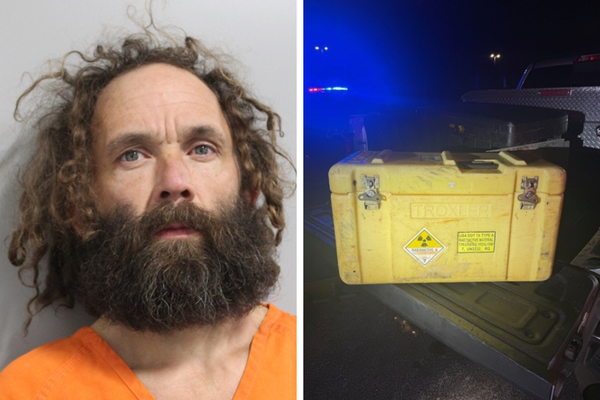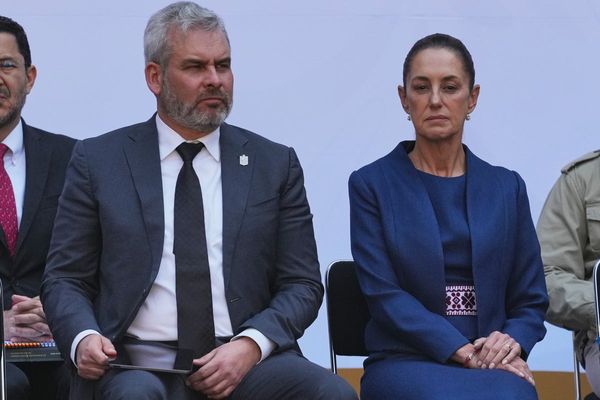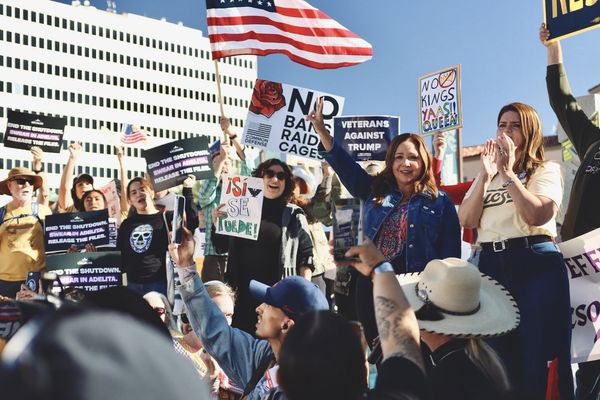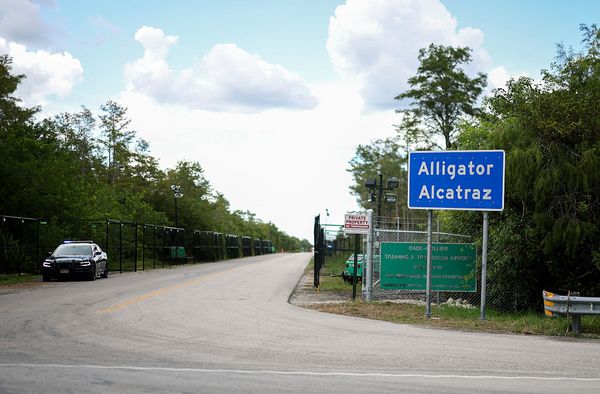Unlike other major American cities, the federal government’s footprint is everywhere in the nation’s capital.
Congress handles the city’s budget, and federal prosecutors command a bulk of its criminal justice system. Huge chunks of the city itself — from public parks and sidewalks to the medians and green spaces between streets and inside traffic circles — are under the federal government’s control. The capital is dotted with office buildings, military installations and other properties under federal control, woven into a city with a complicated governing structure shared with Congress and federal law enforcement.
This week, Donald Trump pushed for even more authority by declaring a “crime emergency” to “federalize” local police and deploy the National Guard and federal law enforcement to local landmarks and monuments as well as city streets and neighborhoods.
Critics have argued that the move is low-hanging fruit for Trump in a city already under limited local control, serving as the president’s backyard “political theater” for national ambitions.
After Trump declared from the White House that “we’re going to take our capital back,” D.C. Mayor Muriel Bowser appeared to admit her hands were tied, thanks to the city’s complicated dynamic with the federal government looming over it.
“For decades, D.C. has been used as a petri dish by Congress and presidential administrations to try out a variety of policies,” according to at-large city councilmember Christina Henderson.
“Without statehood, we are limited in our ability to prevent or deter these repeated federal incursions,” she said in a statement this week. What the president has imposed is “an entirely new level of interference,” she said.
Trump and his allies routinely berate local officials and the people who live in the capital, despite the federal government largely holding the city’s purse strings and the fact that residents lack full voting power in Congress. There are no D.C. senators, and the sole member of the House of Representatives representing the district cannot vote on legislation.
The city’s residents also overwhelmingly have voted against Trump.d Democrats Kamala Harris, Joe Biden and Hillary Clinton each received more than 90 percent of the vote against Trump in 2024, 2020 and 2016 elections, respectively.
Earlier this year, Republicans in Congress approved legislation that blocks D.C. from spending nearly $1 billion of its own taxpayer funds towards a city budget that Congress had already approved. That deficit forced city officials to scramble for public investment in schools, infrastructure and police salaries.
Public spaces fall under the purview of the National Park Service, so any improvements are up to the feds to handle.
Critical vacancies on the D.C. courts are up to Congress to fill. And the city’s U.S. Attorney’s Office — which handled the nation’s largest-ever criminal investigation in the wake of January 6, 2021, among other high-profile cases — also is responsible for prosecuting other crimes in the district.
How those crimes are prioritized is also up to that office, not the city leaders who take the blame for what Trump called a capital overrun with “bloodthirsty criminals, roving mobs of wild youth, drugged-out maniacs and homeless people.”
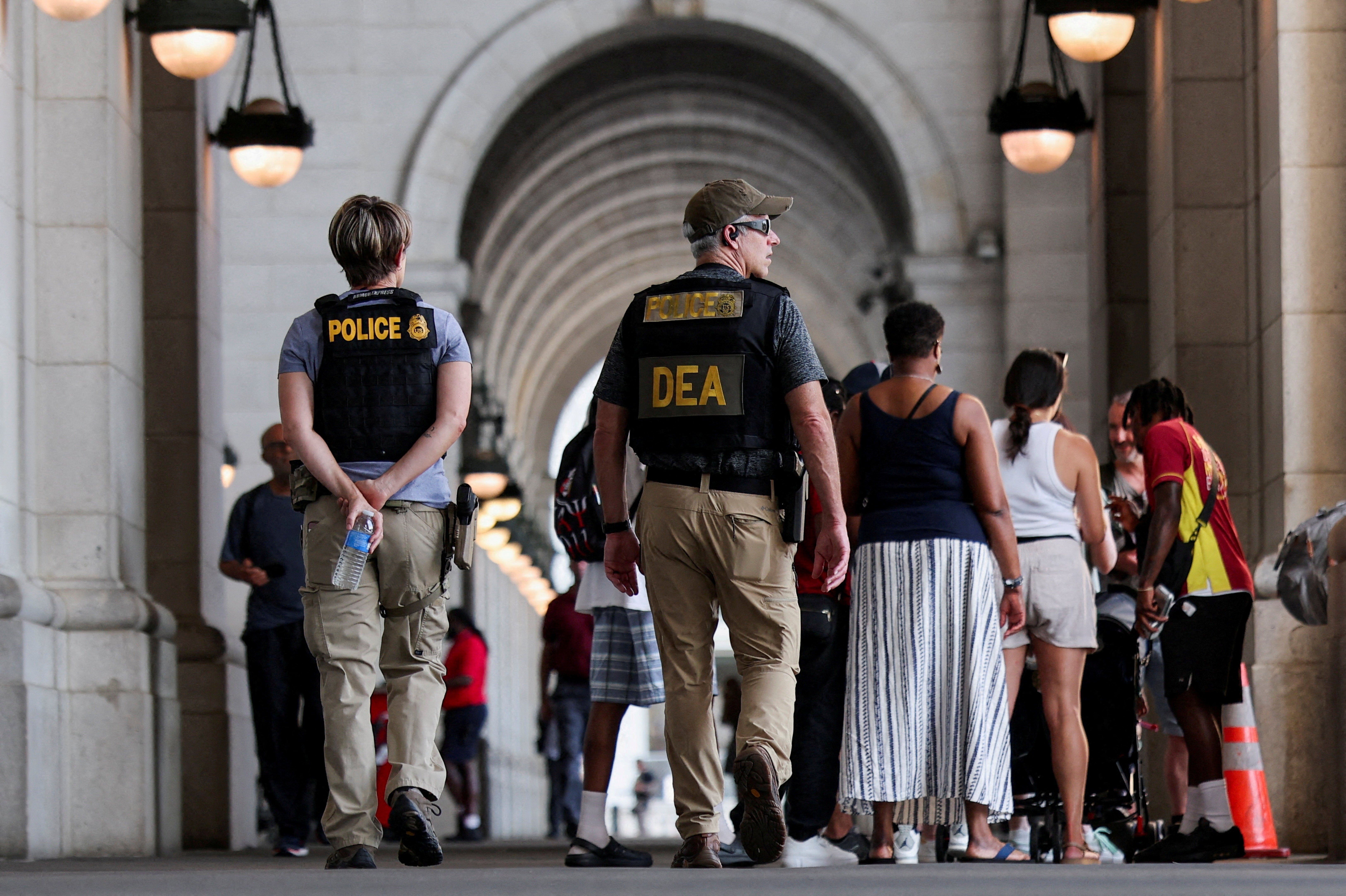
Trump has repeatedly threatened to put D.C. under total control, and critics have warned that his latest maneuvers imperil what autonomy it has left. The president’s agenda is driven by “fear, misinformation and the misuse of federal authority,” according to the Vera Institute of Justice.
The administration’s takeover could “destabilize communities and undermine some of the evidence-based reforms D.C. has already been implementing to address crime and disorder,” including federally approved programs for juvenile offenders, the group said.
Trump is “micromanaging D.C. to serve a political agenda of overreaching federal control,” according to Monica Hopkins, executive director of the ACLU of the District of Columbia.
Since it was enacted federally in 1973, the Home Rule Act has delegated the city’s day-to-day operations to the municipal government run by the mayor’s office and city council. For Trump to exert full control over the district, Congress would have to repeal it.
That would require 60 votes in the Senate, where Republicans carry a thin 53-47 majority. Democratic lawmakers have resisted such proposals, though many prominent Democrats have advocated for D.C. statehood that would expand residents’ representation in Congress and bring the district more fully into local control.
The Home Rule Act, however, grants the president authority to take control over the local Metropolitan Police Department for 30 days. The president must then ask Congress for legal permission to extend that takeover once time runs out.
On August 13, Trump said he wants “long-term extensions” of his federal occupation.
“I don’t want to call a national emergency. If I have to, I will,” he said.
The president also called on Congress to pass a “crime bill” that’s “going to initially pertain to D.C.” but serve as a “very positive example” for other cities.
Trump can’t stop using false and misleading data to make his case for DC takeover
Donbas: Why Russia is desperate to capture eastern Ukraine’s industrial heartland
Starmer and Zelensky united on ‘strong resolve’ to secure just peace in Ukraine
Social Security has existed for 90 years. Why it may be more threatened than ever

